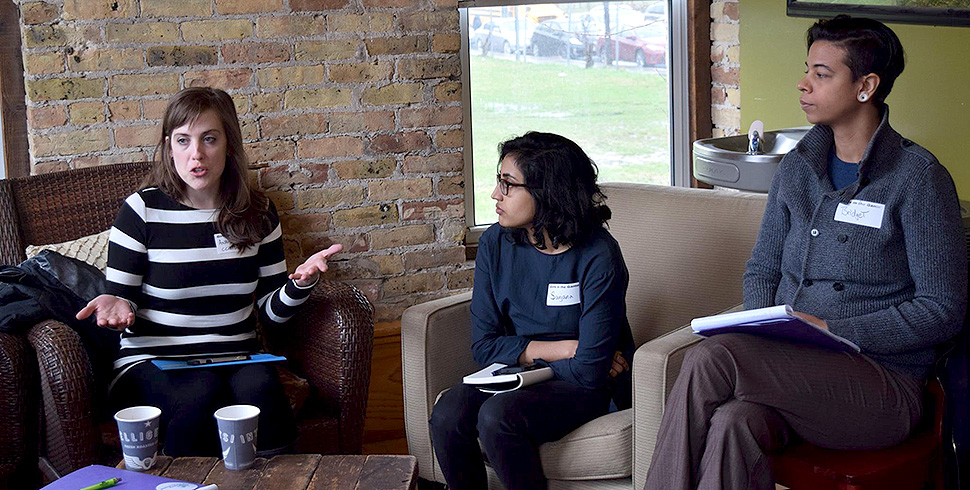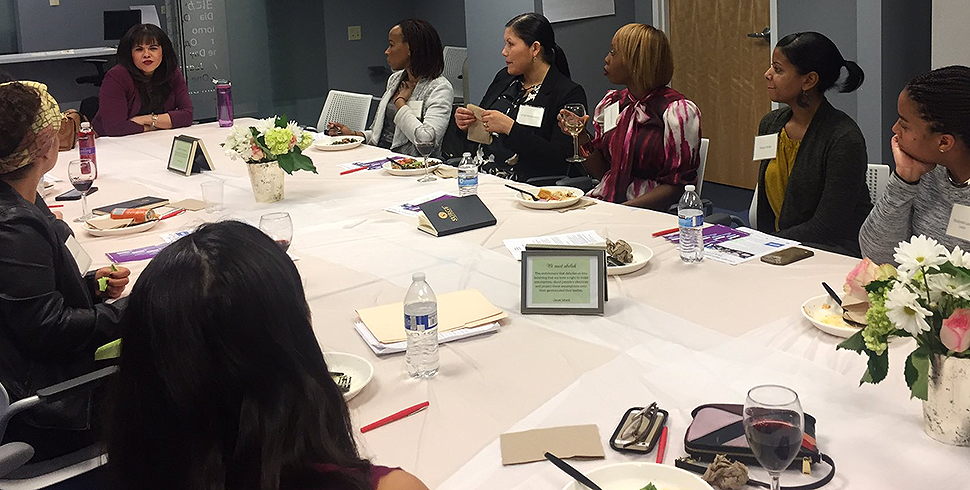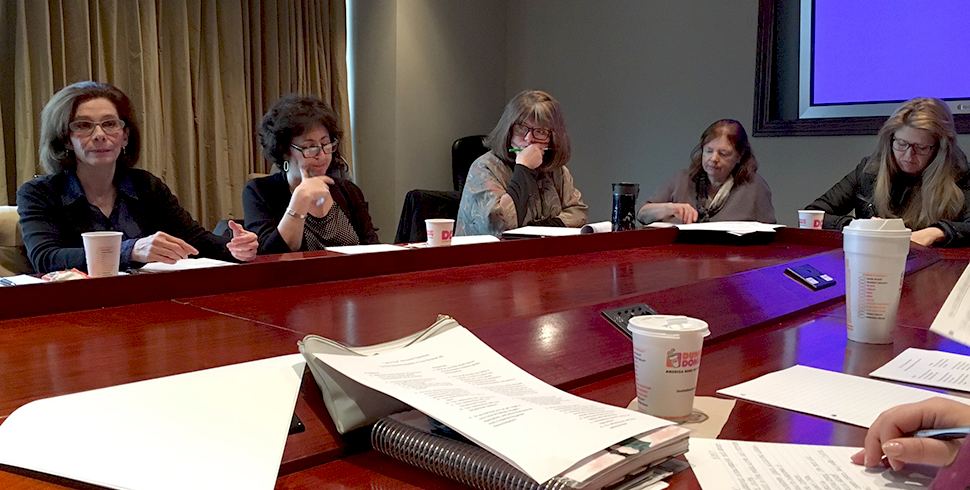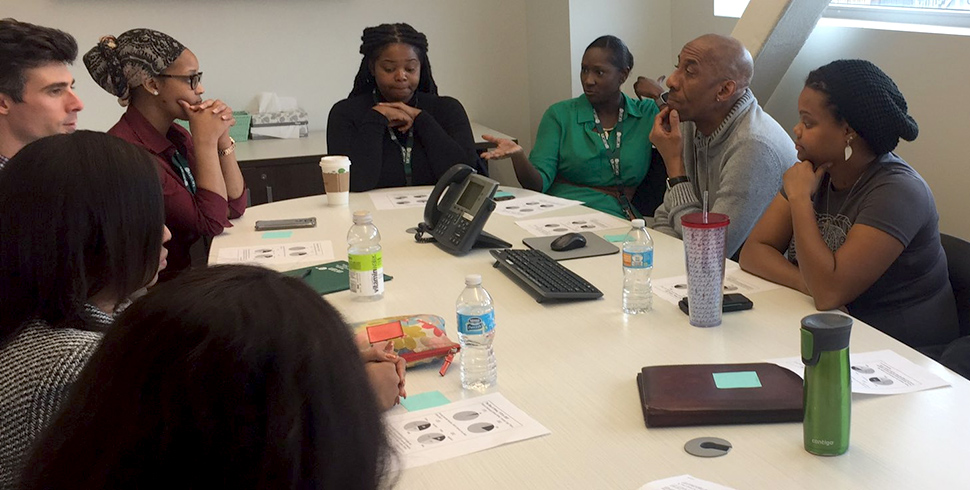From Talking to Action
Before work and after school, in coffee shops and conference rooms, over 100 groups of Chicagoans came together during the week of March 26, 2017 to have honest conversations about equity and gender bias as part of Talk It Out and The 100% Project.
The idea of Talk It Out emerged as a key strategy from the “Salons to Solve” CFW hosted in 2014, which highlighted the need for continued conversation about gender bias. Something as simple as a conversation over coffee can be an opportunity to share a story and to hear a new perspective, to swap strategies for challenging bias, and to intentionally engage new people in deconstructing gender norms that would otherwise go unnoticed.67% of respondents said #TalkItOut changed how they think about gender bias. #TakeActionwithCFW Click To Tweet
Conversations took place among community partners like UCAN Chicago, Chicago Women Take Action, and the Metropolitan Chicago Breast Cancer Task Force; students at Northwestern and University of Chicago’s Booth School of Business; and corporate groups at Comcast, Zurich and CNA. Across the region, individuals from diverse backgrounds discussed how gender bias impacts their own lives, at home and in the workplace, as athletes and artists, as spouses and parents.
The conversation continued on social media with the hashtag #TalkItOut. Many participants live-tweeted their conversations and observations. During a Twitter chat on March 29, #TalkItOut trended in the Chicago region.
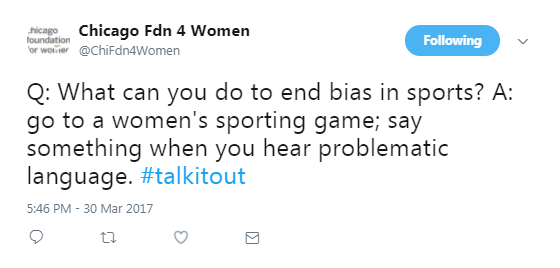
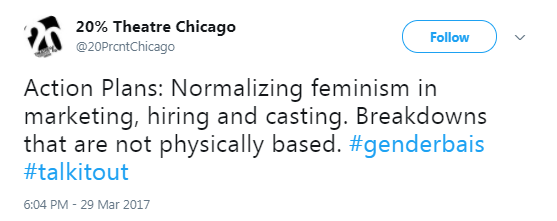
Many of the conversations focused on intersectionality and women’s different experiences of bias based on their race, socioeconomic status, and sexuality or gender identity.
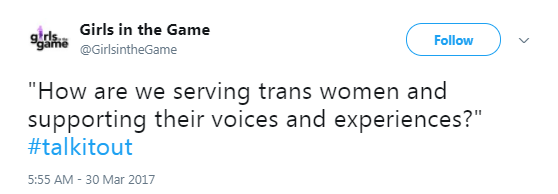
Conversations also focused on how individual women and men can take action to challenge gender bias in their own lives. Chicago Tonight joined a group of professional women brought together by Chicago Women Take Action and the Illinois Psychological Association Task Force on Overcoming Gender Bias for a conversation before work. The group discussed how they can take action when confronted with gender bias in their daily lives. “What we can now say is ‘I know it, I see it, I’ll talk about it,’” said facilitator Jane Conron.
These conversations are also a learning opportunity for CFW. Participants shared their insights on social media and in a survey, helping CFW to measure the impact of these conversations, and to explore new ways to advance our collective efforts around gender equity.
67 percent of respondents said Talk It Out changed the way they think about their experiences, including recognizing “when I’m being biased and don’t even know it.” Others said they appreciated hearing other perspectives, especially from women of color, and learning new ways to approach gender bias when they encounter it.
Over 70 percent said they changed their actions based on their conversation, including speaking up when they hear bias, listening to and supporting other women more consistently, and being more conscious of the gendered chores they assign their children.
And nearly 90 percent of respondents said they intend to share what they learned, becoming a new wave of ambassadors for gender equity.
These conversations are not easy. They require introspection and honesty. They are often uncomfortable. But, we can no longer afford to ignore the need for all of us to shift our mindsets, challenge our own biases and prejudices, and transform our culture to one that embraces the basic human dignity and value within each of us. By doing so, Chicago has the potential to move beyond making only incremental progress to realizing true gains for women and girls. The 100% Project will continue to push us to all play our part in ending gender bias.

